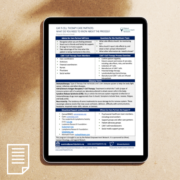How To Be A Better Caregiver When A Loved One Gets Sick
This podcast was originally published on National Power Radio on July 12, 2019 here.

None of us are prepared to be caregivers — the role is thrust upon us. More than 40 million Americans are caring for an elderly parent or loved one. Here are six tips to make the caregiving burden more sustainable:
1. Accept help, and don’t be afraid to ask for it.
People will ask you what they can do early in your parent’s illness, so strike while the iron is hot, says Katy Butler, author of The Art of Dying Well.
“Right after a crisis, friends and family rush in and say, ‘Is there anything I can do?’ ” Butler says. “And you’re often so overwhelmed you can’t even think. But strike while the iron is hot and take advantage of it.”
Ask for specific things like a meal or caregiving relief to allow you to take some time out.
2. Break down caregiving tasks into bite-sized solutions.
Figure out the tasks that sap your energy the most (is it bedtime? Dressing? Transportation?) then think about who you can get to help with those specific tasks. It’s a lower-cost solution than full-time care or institutionalization.
The National PACE Association can provide services that help support family members so the people they love can continue to live at home. PACE operates in 31 states; check to see if your state is one. Other options include Home Based Primary Care through the VA for eligible veterans, van services and Meals on Wheels.
3. Don’t tell your loved one what to do. Ask about the quality of life they want and how you can get them there.
Minimize conflict with your family members by identifying their goals rather than issuing them orders. That way, you can work together to achieve them.
Make a list of things your loved one really loves doing, whether it’s a weekly bridge game, listening to music or having tea with a friend. You can also find ways to help outsource these kinds of tasks, too.
“You’ve got to be thinking about what makes this person’s life worth living,” says Butler.
4. Be an empowered medical advocate for your loved one.
The inertia of aging and medical care will lead your loved one down a slope of more tests and procedures if you don’t keep track of the big picture. For many elderly parents, a good quality of life is much more valuable than more years spent suffering or tethered to medical appliances. A key caregiver job is asking how a proposed procedure will improve your loved one’s quality of life. If it won’t, then don’t.
5. Get your legal ducks in a row so you can focus on your relationship
As a caregiver, you’ll be called on for medical and financial decisions. The sooner you brave those difficult conversations for end-of-life care, the better you’ll be able to stick to your loved one’s game plan for the future.
Help your loved one create an advance directive (if they haven’t already), a documentation of a patient’s preferences regarding their care. According to surveys, only about a third of Americans have one. You can find inexpensive templates online at sites such as Five Wishes.
6. Make sure to take care of yourself, too — you are more than a caregiver.
Caregiver burnout is a real phenomenon. Taking on the role of caregiver often starts in crisis and becomes the new norm, which can alter your life forever. Make sure to take time out to care for yourself; getting away for a bit is good for you and your loved one.
Also, savor the little moments with your loved one. Your relationship roles may have changed, but you’re still family.
“Remember that you are more than just a caregiver,” Butler says. “You’re also that person’s son or daughter. If there are ways that they can still mother or father you, even in their decline, even with their disabilities, soak them up.”











